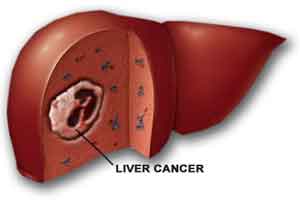- Home
- Editorial
- News
- Practice Guidelines
- Anesthesiology Guidelines
- Cancer Guidelines
- Cardiac Sciences Guidelines
- Critical Care Guidelines
- Dentistry Guidelines
- Dermatology Guidelines
- Diabetes and Endo Guidelines
- Diagnostics Guidelines
- ENT Guidelines
- Featured Practice Guidelines
- Gastroenterology Guidelines
- Geriatrics Guidelines
- Medicine Guidelines
- Nephrology Guidelines
- Neurosciences Guidelines
- Obs and Gynae Guidelines
- Ophthalmology Guidelines
- Orthopaedics Guidelines
- Paediatrics Guidelines
- Psychiatry Guidelines
- Pulmonology Guidelines
- Radiology Guidelines
- Surgery Guidelines
- Urology Guidelines
Scientists reveal herbal remedies containing aristolochic acid may cause liver cancer

Scientists from Singapore and Taiwan have revealed a decisive link between Aristolochic Acids (AA), a natural product of some plants used in herbal remedies, and liver cancers. Using mutational signature analysis, the researchers found that liver tumours had been exposed to AA, which had mutated many genes that cause cancer.
The team, led by Professor Steven Rozen from Duke-NUS Medical School (Duke-NUS), Professor Teh Bin Tean from the National Cancer Centre Singapore (NCCS), Professor Alex Chang from Johns Hopkins Medicine Singapore and Professor Hsieh Sen-Yung from Chang Gung Memorial Hospital in Taiwan, first sequenced the DNA of 98 liver cancers from Taiwan. Using mutational signature analysis, they found high numbers of AA-related mutations in over three-quarters of these cancers. Mutational signatures are patterns of changes in the DNA caused by mutagens, compounds that cause cancer.
"Although we knew that there was exposure to AA in Taiwan, we were very surprised to find such a high proportion of liver cancer sufferers had exposure to AA," said Professor Hsieh.
The team then looked at publicly available data on mutations from 1,400 liver cancers from around the world. While AA is found in plants used in traditional medicine worldwide, the team found high prevalence of exposure in other parts of East and Southeast Asia (see Fig. 1).
Professor Rozen noted: "This also was an unexpected finding. We did not suspect that exposure to AA was so prevalent in so many different areas."
AA, a known mutagen, was previously implicated in kidney and urinary tract cancers in Taiwan. In this new study, the researchers confirm that AA mutations are involved in causing liver cancer as well. "This was also another surprising finding of this study," added Professor Rozen.
Professor Teh from NCCS added, "This is a follow-up study for our 2013 paper, when our team made a breakthrough in understanding the cancer-promoting action of AA in urinary tract cancer. Our new study establishes that AA is also implicated in liver cancer."
AA is a natural compound found in Aristolochia and Asarum plants. These plants are commonly used in traditional herbal remedies for many purposes including weight loss and slimming. AA has been officially banned in Europe since 2001 and in Singapore since 2004. Some herbs that contain AA have been banned in Taiwan since 2003, and in China, the use of some, but not all, AA-containing herbs in traditional medicine is restricted. While the United States Food and Drug Administration has issued warnings about herbs containing AA, their sale is unrestricted as long as they are labelled correctly and no health claims are made.
However, the effects of such bans may take years to materialise; so it could be years before rates of AA-associated cancers fall. In addition, herbs containing AA are easily available online. To complicate matters, herbs are often bundled and sold as formulations rather than individually, and some formulations might use herbs containing AA. Furthermore, herbs containing AA are sometimes improperly labelled, making it difficult for suppliers and consumers to be certain of the constituents of multi-herb formulations.
Plants that may contain AA include Asarum plants ((细辛, xì xīn), and powered xì xīn products manufactured in Taiwan and China were recalled in Singapore in 2014 because they contained AA. Other herbs that are likely to contain AA are: 马兜铃 (mǎ dōu líng), 青木香 (qīng mù xiāng). 天仙藤 (tiān xiān téng), 广防己 (guǎng fángjǐ), 关木通 (guān mù tōng), 寻骨风 (xún gǔ fēng), 朱砂莲 (zhū shā lián, also written as 朱沙莲).
As AA-containing plants and remedies are still widely available, Professor Alex Chang, noted that "public education and awareness are very important for avoiding exposure."

Disclaimer: This site is primarily intended for healthcare professionals. Any content/information on this website does not replace the advice of medical and/or health professionals and should not be construed as medical/diagnostic advice/endorsement or prescription. Use of this site is subject to our terms of use, privacy policy, advertisement policy. © 2020 Minerva Medical Treatment Pvt Ltd